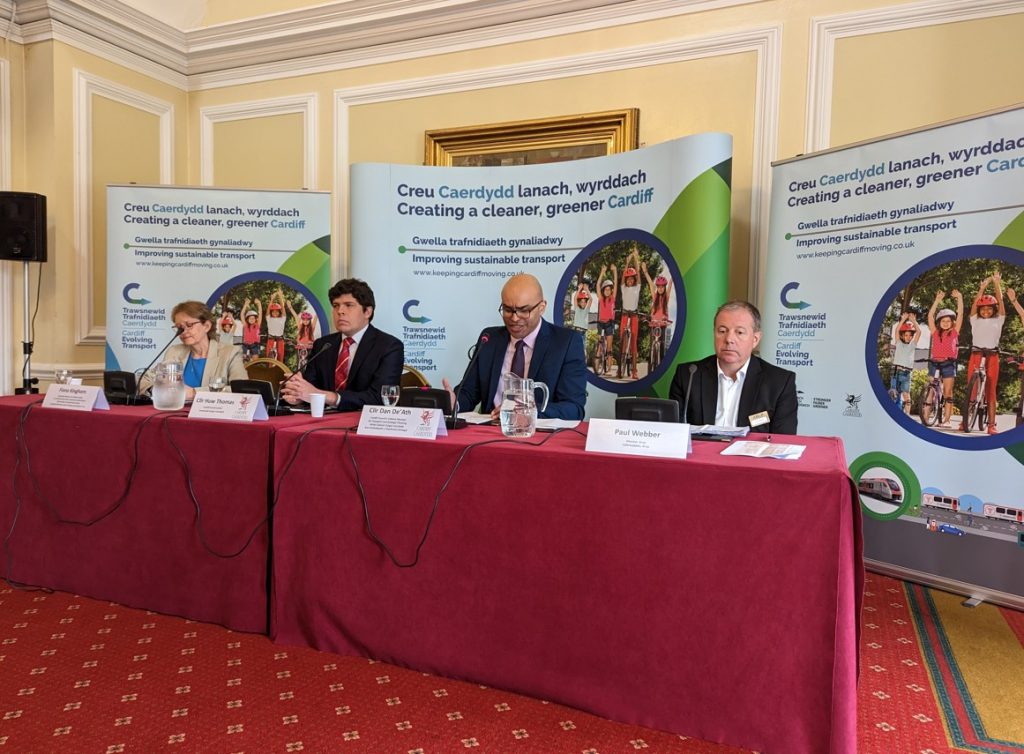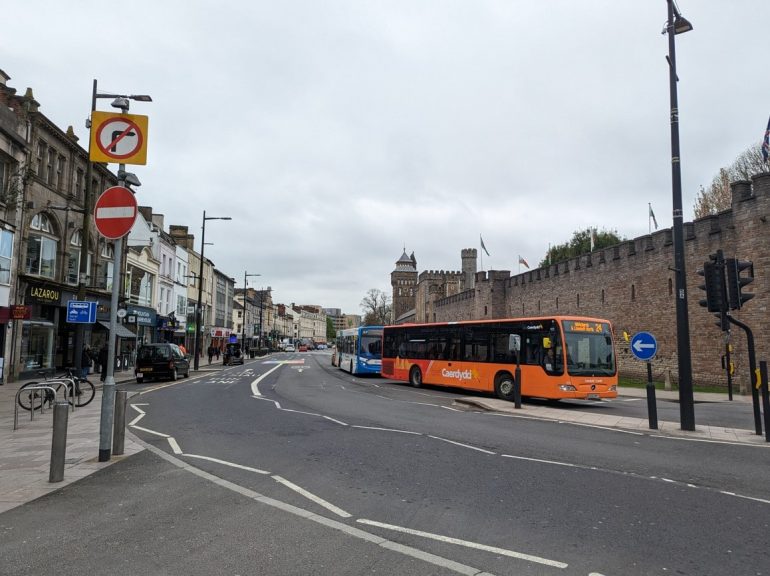Road users could be charged to drive in the city centre in a bid to reduce pollution and congestion
CARDIFF Council aims to introduce a congestion charge for people driving through the city, but not before improving transport infrastructure.
The council has announced its “intention in principle” to introduce road charging as part of a package of measures to improve air quality, congestion and the city’s transport system.
Road transport is responsible for 40% of carbon dioxide (CO2) emissions in Cardiff, which is the joint highest figure among the UK’s 11 core cities, the council says.
Similar schemes have been implemented in cities across the UK, including Bristol (£9 per car, £100 per HGV), Bath, Bradford, and Birmingham (£8 per car, £50 per HGV).
At a media conference on Monday at City Hall, the council said that before any charges were introduced other transport infrastructure would have to be improved.

“It could take many years to deliver and it is unlikely to happen before 2027,” said a Cardiff Council spokesperson.
“To help reassure the public that a road user payment could play a part in helping deliver change, the cabinet report recommends that key transport improvements should be up and running in advance of any payment being introduced.”
Examples of these improvements include:
- Introduction of a £1 bus fare on key routes, better and expanded bus services
- The delivery of phase 1 tram from Central Station to Pierhead Station in the Bay
- Coryton and City Line frequency enhancements
- Improvements to regional commuting.
Council leader Councillor Huw Thomas said Welsh Government proposals to bring all bus routes under Transport for Wales would give the council more say in what the bus network looks like.
Alongside environmental benefits, Coun Thomas said charging drivers could help to fund an improved transport network across Cardiff.
“My expectation is, off the back of taking the decision to implement this scheme, we would be able to borrow the money to put in place those improvements,” he said.
“I was really proud back in 2020 when we sent out our intention in a white paper to deliver a modern cleaner and more affordable transport system – the one that Cardiff needs and deserves.
“We were clear at that time that we would consider all means to fund what is expected to be a multibillion investment programme.
“What has become quite clear since then is that the current transport funding model cannot deliver the required investment at the necessary pace and scale.
“A new approach is needed.”
Some road users – such as blue badge holders – will be exempt.
However, the proposals currently are at such an early stage that there is little detail about exactly how it will work. Key questions – such as, what the charges will be, how they will be enforced, and the area the charges will cover – will be subject to a public consultation.
“I imagine people in the city will have many questions about what we are doing,” said Coun Dan De’Ath.
“But, at the moment, the answer will mostly be that we haven’t decided yet.”
Air pollution and physical inactivity are “major threats to public health in Cardiff”, according to Fiona Kinghorn, executive director of public health at Cardiff and Vale University Health Board.
“Wales has a higher prevalence of asthma than the European average with seven per cent of adults in Cardiff diagnosed with asthma, and six per cent of children, aged 10 to 14.”
The health expert spoke of how “physical inactivity is a killer”.
“It’s about looking for ways to more regularly be active in our day, such as walking or cycling to or from a bus station.
“We need to ditch the car to some degree to create the change we need to see.”
Cardiff Conservatives have said they are “vehemently opposed” to any congestion charges in a post on Twitter.
Leader of the Liberal Democrats, Coun Rodney Berman, is calling for a referendum on the proposal to gauge public opinion.
“The jury is therefore out, with many people feeling the current council’s policies are contributing to the increasing congestion we have been seeing on the city’s roads including on our key arterial routes,” Coun Berman said.
“We will be watching the outcome from any consultation with interest.
“It has to be seen as genuine consultation, and one way that could be achieved would be if the council committed to putting the outcome from it out to a referendum before any final decision is taken on whether or not to go ahead.”
During 2023 and 2024 the council will be researching, planning, and consulting the public before cabinet makes a decision at the end of 2024.



